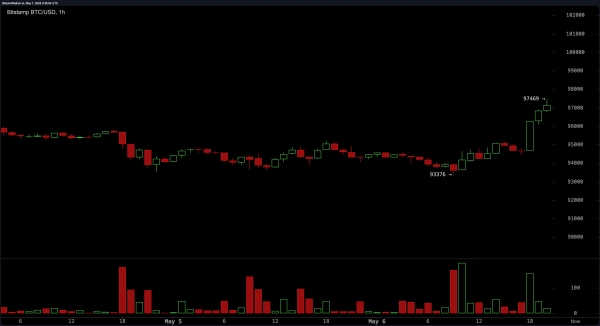Synopsis
WazirX, one of India’s leading cryptocurrency exchanges, recently faced a significant security breach, resulting in a loss of over $230 million. This incident, the largest of its kind in India to date, has prompted a thorough examination of security measures and investor protections within the burgeoning crypto ecosystem.
WazirX, one of India’s leading cryptocurrency exchanges, recently faced a significant security breach, resulting in a loss of over $230 million. This incident, the largest of its kind in India to date, has prompted a thorough examination of security measures and investor protections within the burgeoning crypto ecosystem. To dissect the implications and learnings from this event, a panel discussion was held on live stream with industry veterans Dilip Chenoy, Chairman of the Bharat Web3 Association; Ashish Singhal from CoinSwitch; Sumit Gupta from CoinDCX; and Edul Patel, from Mudrex.
Dissecting the Hack
Edul from Mudrex provided an in-depth analysis of the hack, explaining how malicious actors accessed a secure wallet holding a significant portion of WazirX’s funds. The attackers executed a series of unauthorised transactions, and preliminary investigations suggest that the breach was orchestrated by the Lazarus Group, a notorious hacking collective. Edul emphasised the need for advanced security measures to defend against increasingly sophisticated cyber threats.
Industry’s Security Measures
Ashish from CoinSwitch and Sumit Gupta from CoinDCX shared their perspectives on the broader implications for crypto exchanges. Ashish noted that while this is not the first incident of its kind, it highlights the evolving nature of security challenges in the crypto space. CoinSwitch, he said, works with top custody providers and continuously updates its security practices to safeguard user funds.
Crypto Tracker![]() TOP COIN SETSNFT & Metaverse Tracker5.55% BuyCrypto Blue Chip – 55.27% BuyAI Tracker4.40% BuyBTC 50 :: ETH 503.31% BuyDeFi Tracker1.81% BuyTOP COINS (₹) Solana14,961 (2.79%)BuyTether84 (-0.08%)BuyBitcoin5,597,787 (-0.58%)BuyBNB49,491 (-1.33%)BuyEthereum288,642 (-1.76%)BuySumit Gupta echoed these concerns, stressing the importance of high security standards across all exchanges. He underscored that security is not a one-time checklist but an ongoing process requiring constant vigilance and system upgrades.
TOP COIN SETSNFT & Metaverse Tracker5.55% BuyCrypto Blue Chip – 55.27% BuyAI Tracker4.40% BuyBTC 50 :: ETH 503.31% BuyDeFi Tracker1.81% BuyTOP COINS (₹) Solana14,961 (2.79%)BuyTether84 (-0.08%)BuyBitcoin5,597,787 (-0.58%)BuyBNB49,491 (-1.33%)BuyEthereum288,642 (-1.76%)BuySumit Gupta echoed these concerns, stressing the importance of high security standards across all exchanges. He underscored that security is not a one-time checklist but an ongoing process requiring constant vigilance and system upgrades.
Did you Know?
The world of cryptocurrencies is very dynamic. Prices can go up or down in a matter of seconds. Thus, having reliable answers to such questions is crucial for investors.
View Details »
Impact on Investors
Dilip Chenoy discussed the impact on investors, noting that despite WazirX’s efforts to recover the stolen funds and implement a bounty program, investors need to exercise patience. He highlighted that WazirX, like other institutions facing similar breaches, is working closely with authorities and following best practices to address the issue.
Steps for Preventing Future Incidents
The panelists outlined various steps their respective exchanges are taking to prevent such incidents. Ashish emphasised the importance of adopting global security standards and maintaining transparency, as demonstrated by the Proof of Reserves (POR) declared by CoinSwitch after the FTX incident. Edul and Sumit highlighted the necessity of regular security audits, both internal and external, and maintaining a dedicated team to identify and fix potential attack vectors.
The Role of Regulation and Investor Protection
Dilip Chenoy addressed the misconception that Indian firms are not paying attention to cybersecurity. He explained that exchanges are adopting global best practices and working with top security talent. However, he stressed that regulation plays a crucial role in user protection, and improvements in this area are necessary.
Sumit elaborated on the lack of specific regulations in India compared to traditional banking systems and the need for insured custodians to safeguard investor funds. He highlighted that exchanges take measures to ensure fund security and that historical incidents like Mt. Gox have shown that investors often recover a significant portion of their funds over time.
Legal Recourse and Taxation Implications
The panel also touched upon legal recourse and taxation implications for investors. Dilip advised waiting for clarity from WazirX before making any declarations regarding losses from the hack. He noted that while there is no provision to offset losses from hacks under current regulations, legal recourse under the company act may apply.
Positive Outcomes and Industry Resilience
Despite the setback, the panelists highlighted several positive outcomes. The incident has united the industry in addressing security issues and reinforced the importance of secure custody. Dilip Chenoy expressed confidence in the industry’s resilience and its ability to emerge stronger, with improved protocols to ensure customer protection.
The WazirX hack serves as a stark reminder of the challenges faced by the crypto industry. However, it also presents an opportunity for growth and improvement. As the industry continues to evolve, the focus remains on enhancing security standards, maintaining investor confidence, and working closely with regulators to create a secure and robust crypto environment in India.
As the discussion concluded, the panelists reaffirmed their commitment to protecting investors and ensuring the long-term growth of the crypto ecosystem. With continuous efforts to improve security and collaborate with global entities, the industry is poised to overcome challenges and realise its substantial potential.
(Disclaimer: Recommendations, suggestions, views, and opinions given by experts are their own. These do not represent the views of the Economic Times)
#Budget’ 2024 with ET
Income Tax Expectations from Union Budget 2024
